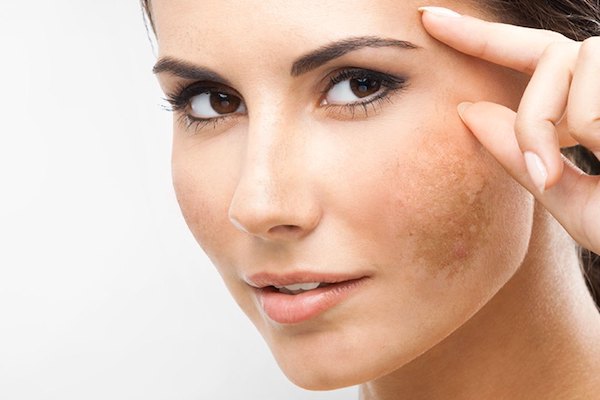Pigmentation and Melasma
What is melasma?
Melasma is a common pigmentation disorder that causes brown or gray patches to appear on the skin, primarily on the face. Melasma is a skin condition that causes patches to appear, typically on the face, that are darker than a person’s skin tone. It may affect between 1.5–33%Trusted Source of people depending on the population. Melasma can be found primarily in individuals with light brown skin to darker skin tones, especially in areas with high sun exposure. Women are particularly susceptible to melasma, and it can appear as brown patches on the face, especially the cheeks, nose bridge, and forehead.
The most common areas for melasma to appear on the face include:
Melasma may also appear on other areas of the body, especially those exposed to a lot of sunlight. These areas may include:
Symptoms of melasma
The primary symptom of melasma is hyperpigmentation — the development of discolored patches of skin or uneven skin tone. These patches are typically flat and appear darker than an individual’s skin tone, often brown or gray in color.
While melasma does not cause any other physical symptoms, some people may find the appearance of these patches bothersome. Patches caused by melasma should not cause physical pain.
Patches most commonly appear on the face. Common locations include the upper lips, bridge of the nose, cheeks, and forehead.
Less commonly, a person may also have patches on their arms and neck.
It is important to note that melasma is not a form of skin cancer, though it may sometimes look like other skin conditions. It is best to consult a dermatologist for diagnosis and treatment.
Melasma causes and risk factors
Doctors do not fully understand why melasma occurs. It may be due to the malfunction of the melanocytes (the color-making cells) in the skin, causing them to produce too much color in certain spots.
As a result, people with light brown skin to darker skin tones may be more likely to develop melasma as they have more melanocytes than people with lighter skin do.

